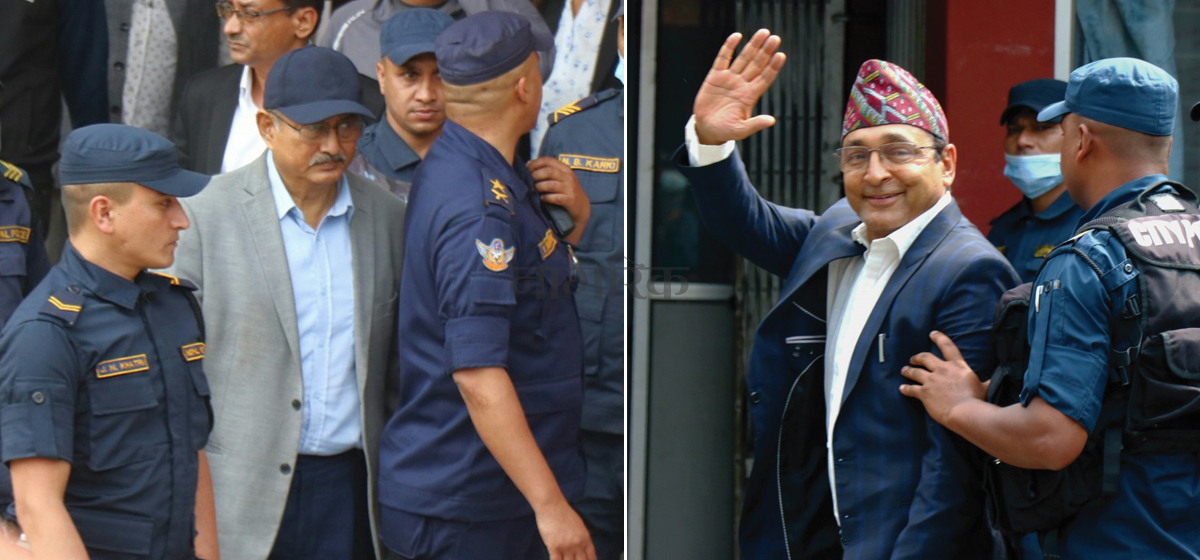KATHMANDU, June 18: The issue of Bhutanese refugees was prominently raised at the Consultations on Resettlement and Complementary Pathways (CRCP) that took place in Geneva earlier this month.
The CRCP (formerly the Annual Tripartite Consultations on Resettlement) was held on June 5-7, bringing together UNHCR, states, NGOs, refugees, and other stakeholders to discuss and advance issues of common interest related to resettlement and other durable migration pathways for refugees.
The CRCP allows for open and frank dialogue and strives to develop new and innovative ways to solve problems and combine resources to improve refugee resettlement, complementary pathways, and integration in their new homes.
Detention hearing concludes, court to issue an appropriate orde...

Representing the refugee community in the Netherlands, Ram Karki, a Bhutanese human rights activist based in The Hague, spoke on the issue of protracted Bhutanese refugee problems in a breakout session on Travel Documents: Unlocking Pathways on the second day of the consultation.
Excerpts from his statement:
I am Ram Karki, a former Bhutanese refugee and now a Dutch citizen representing the Refugee Resettlement Advisory Group from The Netherlands.
In the early 1990s, Bhutan forcefully evicted one-sixth of its population for their support of human rights and justice. These individuals were further deported to eastern Nepal by India. They were housed in seven UNHCR-aided refugee camps. While UNHCR started resettling them in 2007, the program ended after resettling 113,500 Bhutanese refugees in eight different countries, leaving around 7,000 in the camps. UNHCR's operation in the Bhutanese refugee camps ceased in December 2020, leaving the remaining 7,000 at the mercy of the Nepal government.
The already disillusioned refugees were further devastated by the revelation of a fake Bhutanese refugee scandal. The Bhutanese refugees were not just shocked but felt a deep sense of betrayal to learn that the entire government machinery was implicated in the issuance of fake Bhutanese refugee identity cards to over 800 local Nepalese citizens. These innocent, unemployed local people were lured into the scam with promises of resettlement in the USA in exchange for millions of Nepalese rupees. The impact of this scandal on the genuine Bhutanese refugees was profound, as it further eroded their trust in the host government and their hope for a better future.
With this scandal, genuine Bhutanese refugees were abandoned even by the Nepalese government because the government officials responsible for the refugee issue were afraid that they might also be dragged into the scam investigation. Their expired refugee identity cards haven't been renewed, and those with valid ID cards wanting to go for family reunions and other complementary pathways were not being issued travel documents. Those officials responsible for refugee documentation were even afraid to speak with the Bhutanese refugees, let alone provide their services.
At present, the welfare of these remaining Bhutanese refugees is in a dire state, with insufficient support from either UNHCR or the Nepal government. Many are desperate for resettlement, some yearning for family reunions, and others longing for repatriation to their homeland, Bhutan. However, their hopes are dashed when their five-year-valid refugee identity cards expire and have not been renewed. Even refugee children who are eligible for refugee identity cards are not issued them.
Therefore, I urgently recommend that UNHCR urge the Nepal Government to immediately resume issuing/renewing Refugee Identity Cards to those Bhutanese refugees whose cards have expired and to the eligible ones. Additionally, the Nepal Government should issue travel documents to the Bhutanese refugees to opt for complementary pathways and be invited to next year's Consultations on Resettlement and Complementary Pathways (CRCP) to answer questions on the issue raised above. Furthermore, I request that UNHCR take immediate measures to find a permanent solution to this protracted issue and resume its relief and protection until such solutions are found.



































